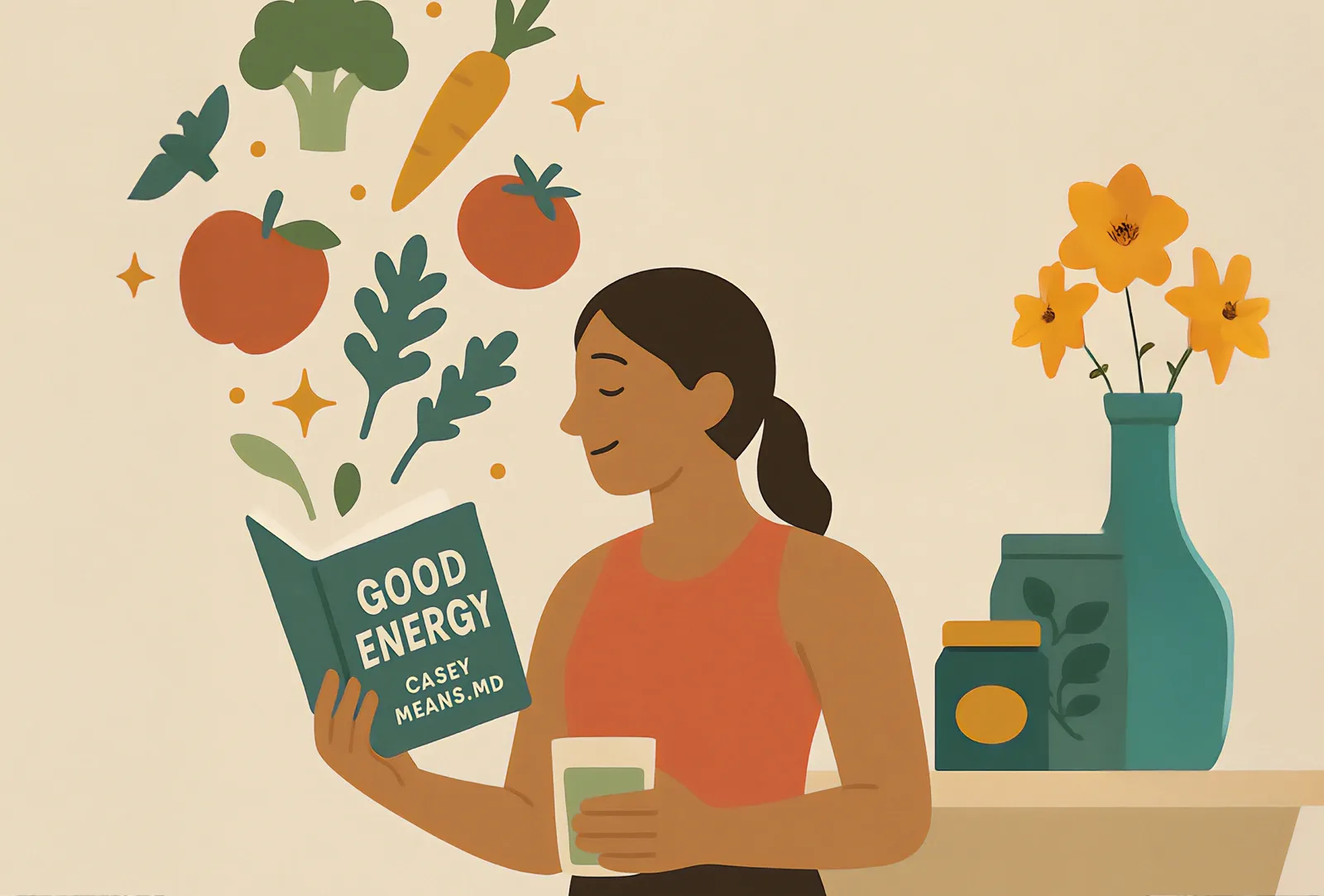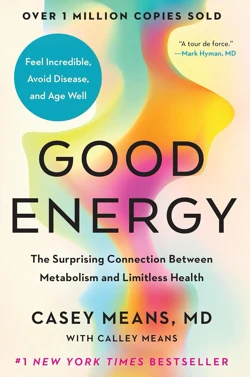Good Energy: How Food Choices Shape More Than Just Your Body
Trail & Kale’s Book of the Month: Why Casey Means, MD, wants us to see nutrition as the foundation for long-term health and vitality

This month, we’re kicking off our new Book of the Month series, a space where we spotlight reads that inspire healthier, more intentional living, whether that’s on the trails, in the kitchen, or in everyday life.

For our very first pick, we chose
It’s a timely message. We live in an era where convenience often trumps nourishment, and where the long-term consequences of ultra-processed diets are easy to ignore until they show up as chronic fatigue, poor recovery, or early signs of disease.
Means’ central point is deceptively simple: the foods we choose either fuel our body’s natural ability to thrive, or they quietly erode it.
From the kitchen to the mitochondria
The book reframes nutrition as more than just “fuel.” Means draws on research showing how our food choices directly affect our mitochondria, the tiny power plants inside our cells responsible for turning nutrients into usable energy.
When these power plants are working well, we don’t just feel physically stronger; we think more clearly, recover faster, and maintain a more balanced mood. When they’re under strain, the effects ripple outward, touching every system in the body.
One of the more compelling aspects of her argument is the connection between stable blood sugar and steady energy.
She makes the case that wild glucose swings, often triggered by highly refined foods, aren’t just about avoiding a post-lunch crash. They can contribute to chronic inflammation, hormonal imbalances, and even long-term risks like heart disease.
The bigger picture
Reading Good Energy isn’t about memorizing a rigid set of rules. Means builds her case with both data and narrative, pulling in stories from her own patients who’ve seen remarkable changes in health after making relatively simple shifts.
These changes are as simple as cooking more whole foods at home, adding protein and fiber to each meal, and cutting down on refined sugars and oils.
She also doesn’t shy away from discussing the environmental and societal factors that make healthy eating harder than it should be. From misleading food marketing to the way our cities are built around fast food access, Means highlights that personal responsibility is only part of the equation.
Real change, she argues, requires reshaping the systems that nudge us toward the easy-but-empty choice.
What this means for active outdoor enthusiasts
For those of us who spend hours on the trails, the connection between nutrition and performance is already familiar. But Good Energy invites us to think about fueling in a broader sense, not just for race day or a long run, but for the decades ahead.
The idea is that when we eat in a way that supports our body’s cellular machinery, we’re not only setting ourselves up for stronger workouts, but also protecting the health that will allow us to keep moving, exploring, and living fully later in life.
Closing thoughts
As the first pick in our Book of the Month series, Good Energy sets the tone for what’s to come: books that combine science, storytelling, and actionable insight; reads that don’t just inform, but also inspire lasting change.
If you’re looking for a August read that will challenge your thinking about food without overwhelming you with jargon or impossible prescriptions, this one is worth a spot on your nightstand. Every bite is a chance to invest in your future self.
to discover the best gear, healthy foods, and life outdoors.















Member discussion